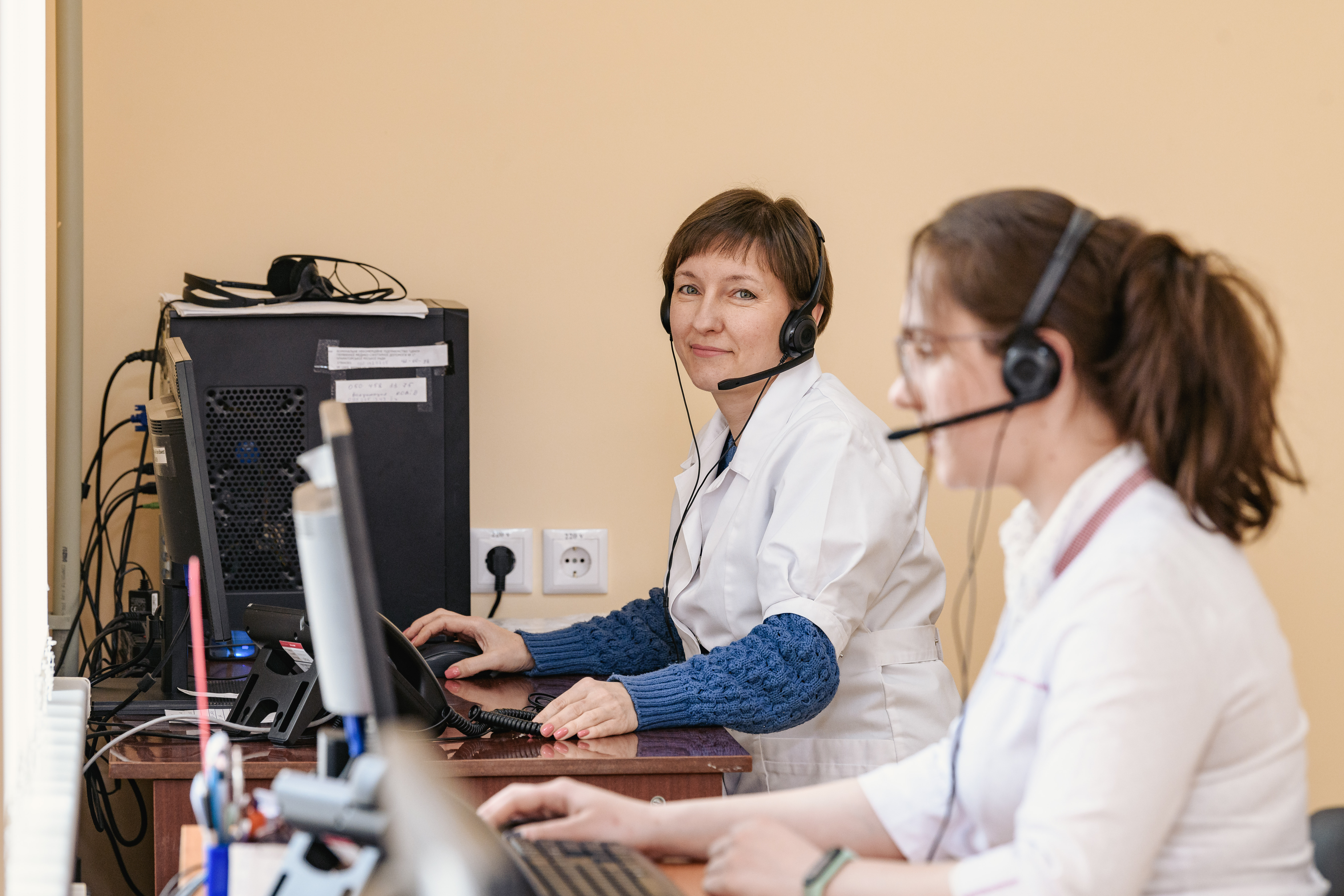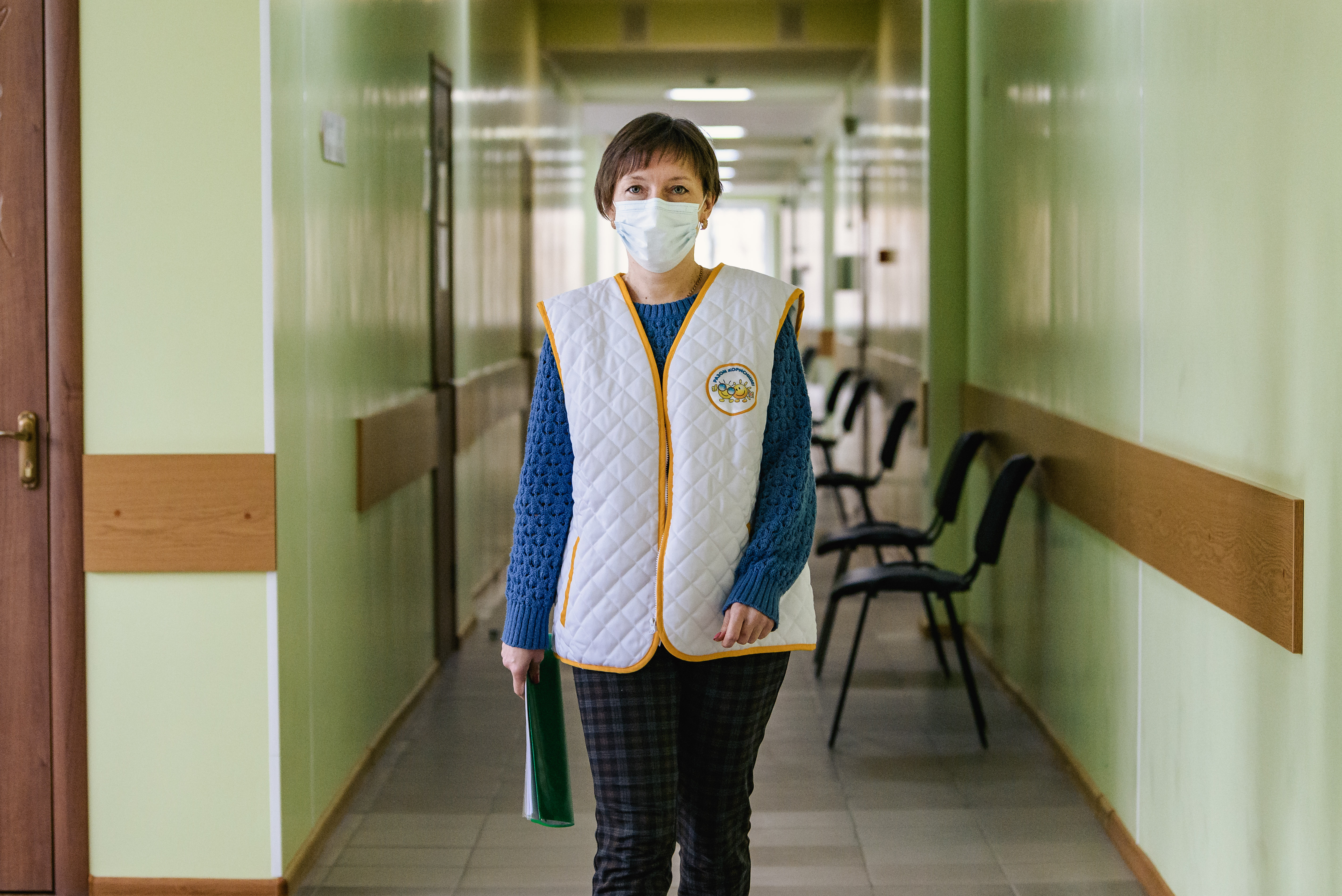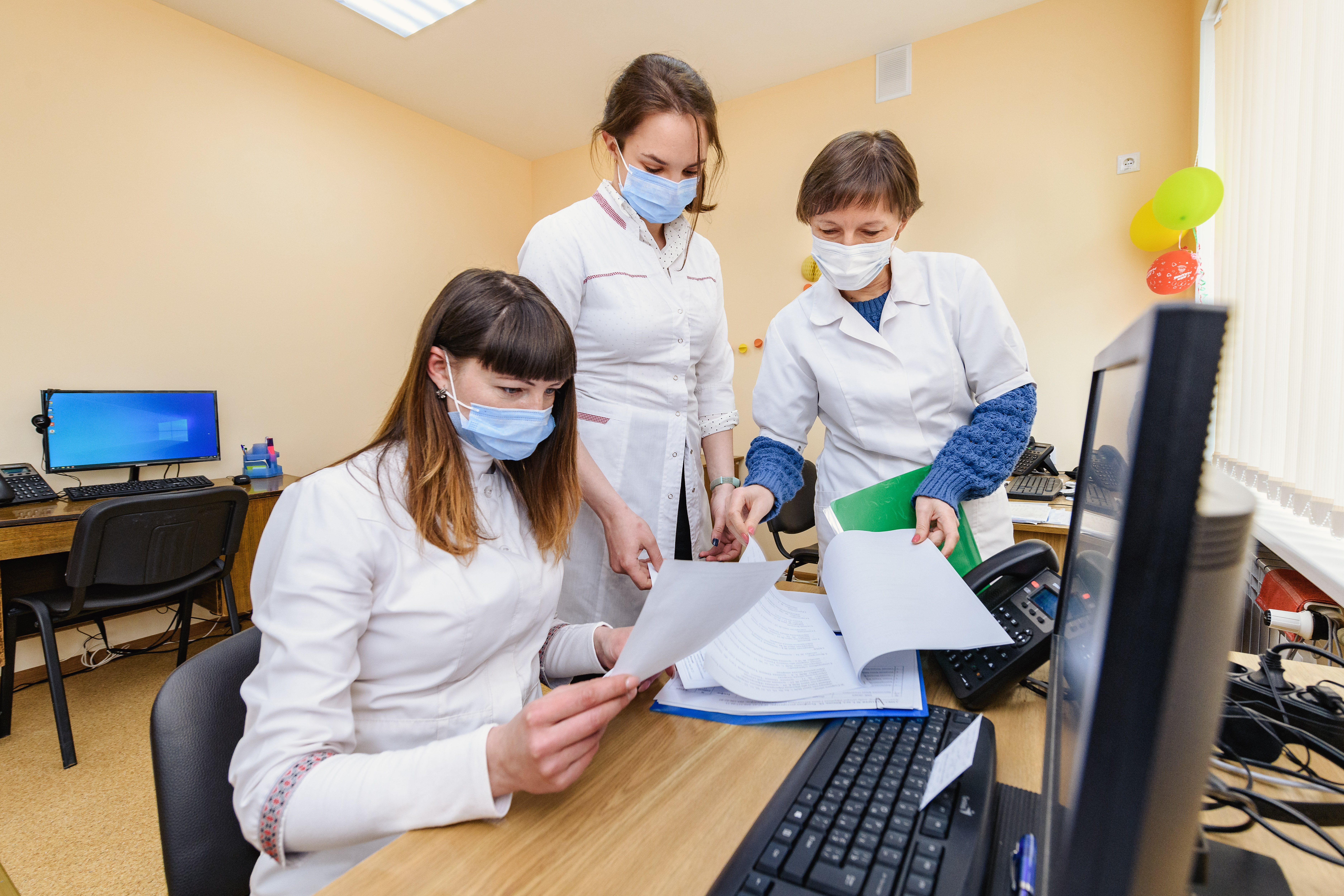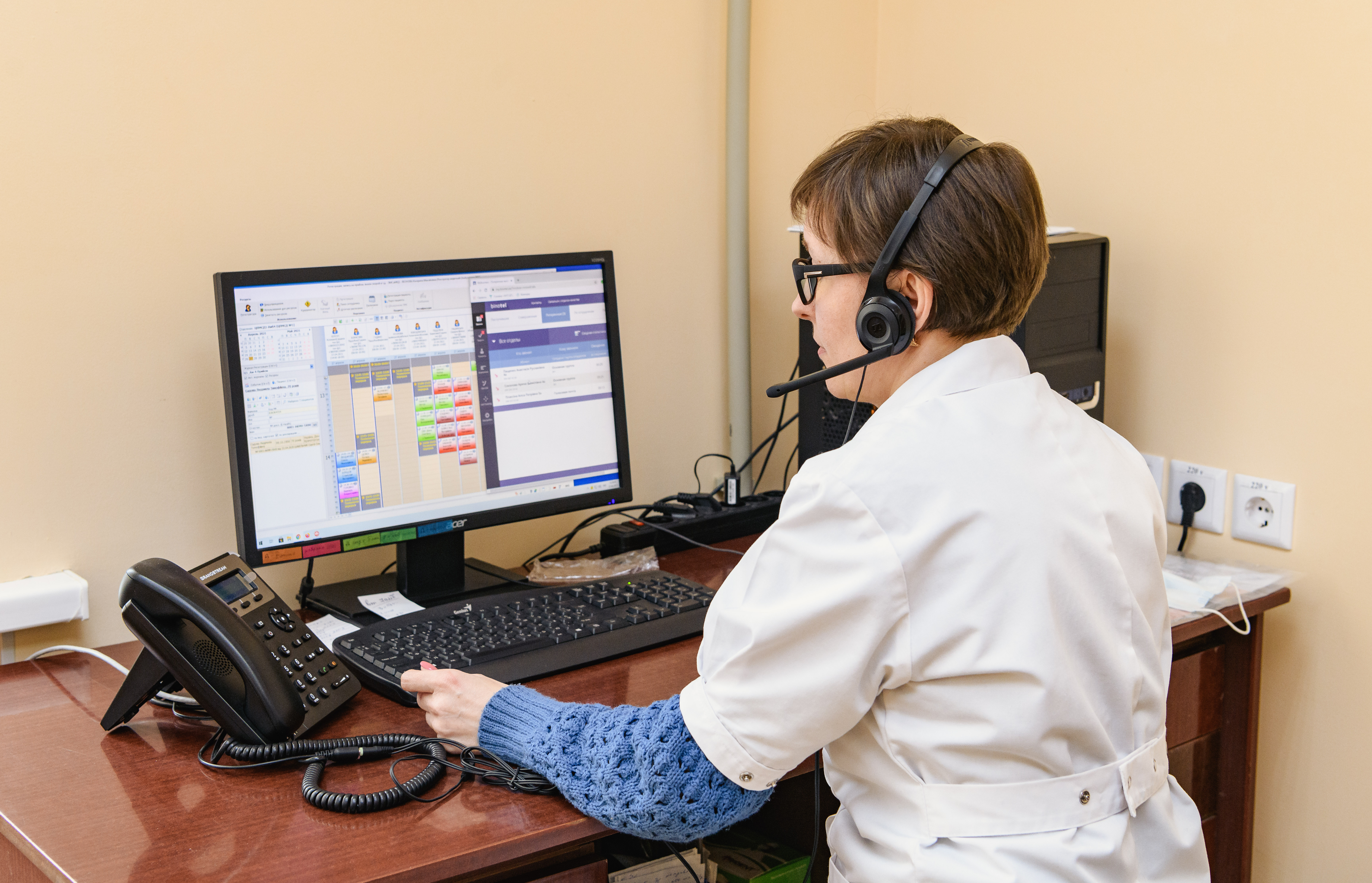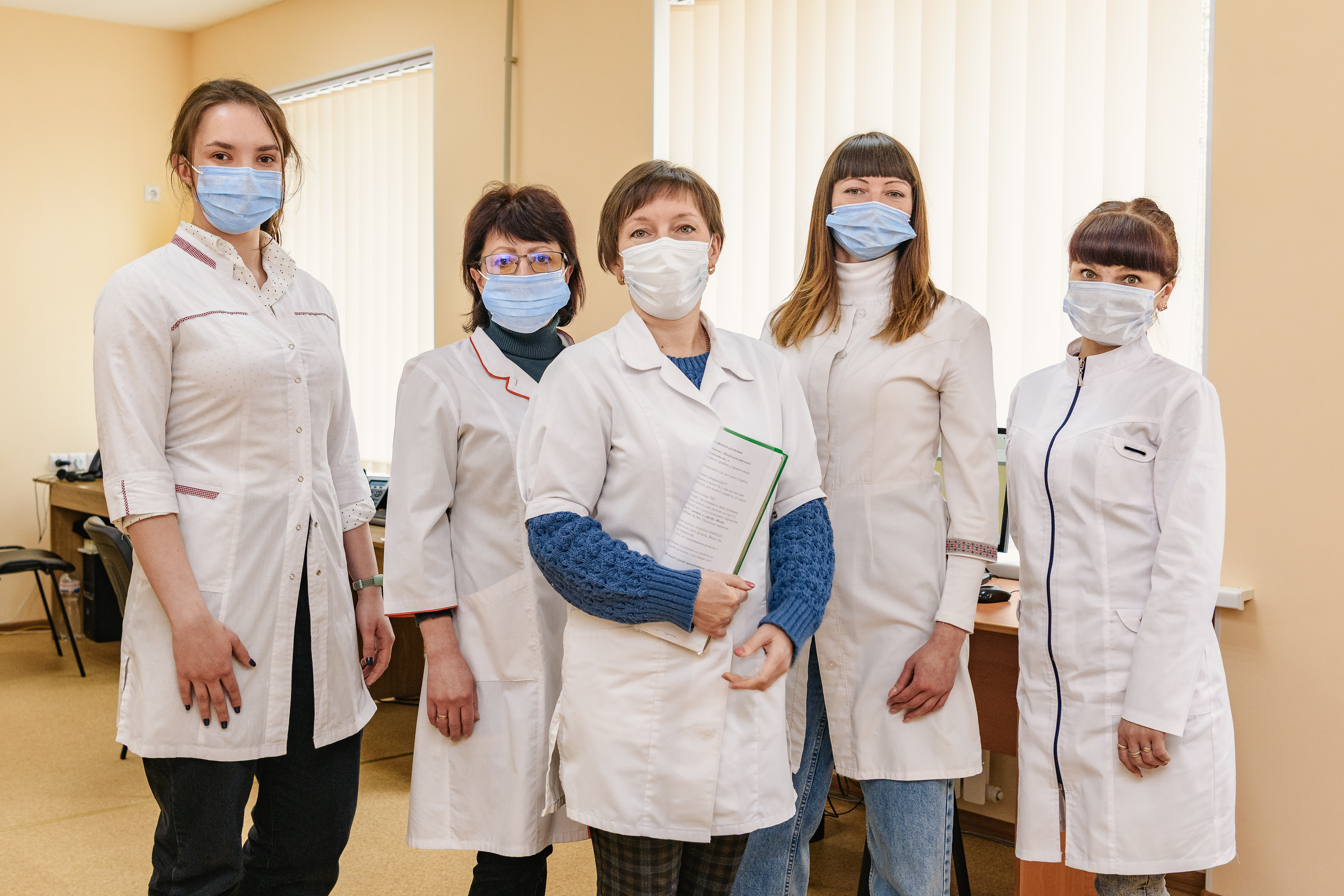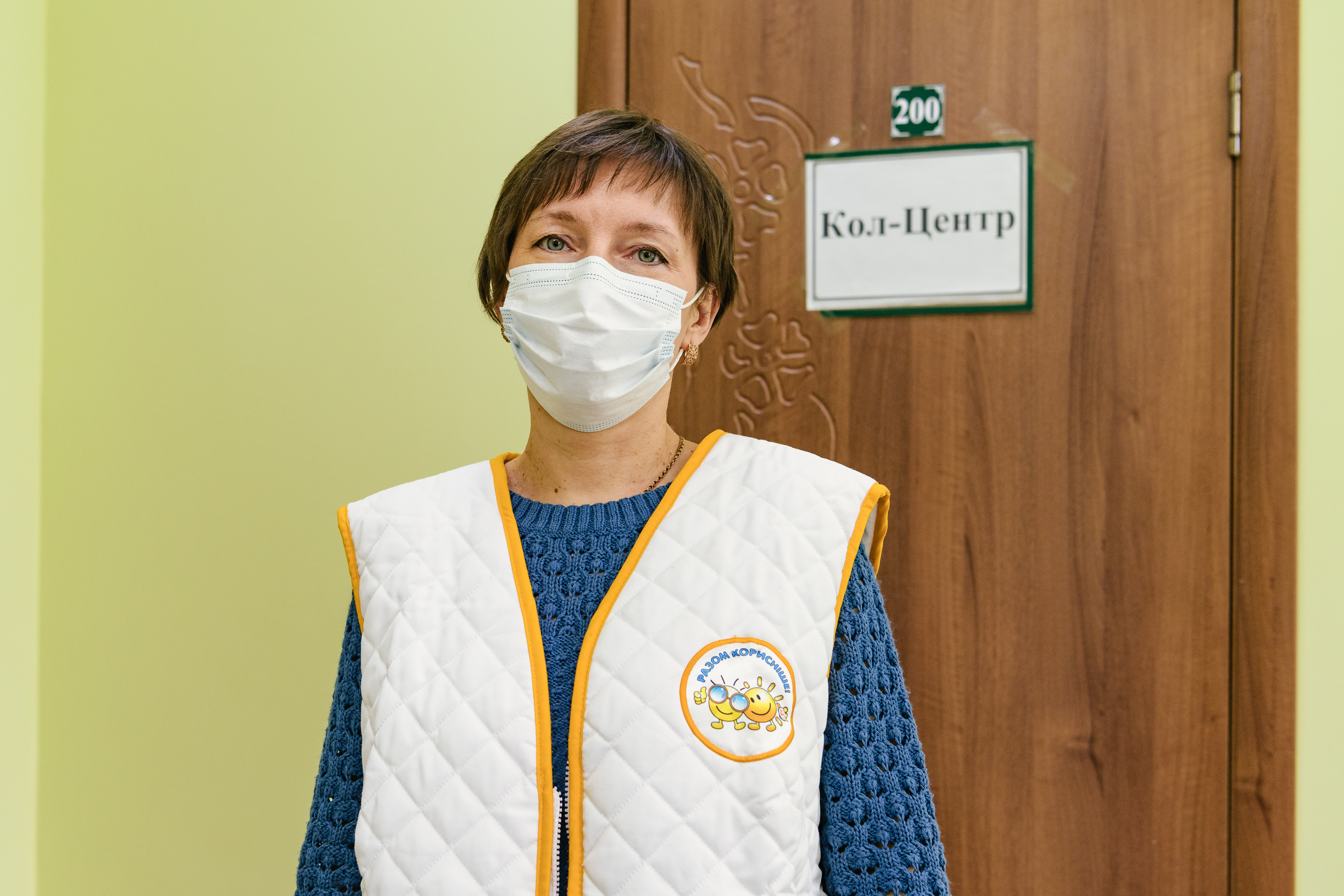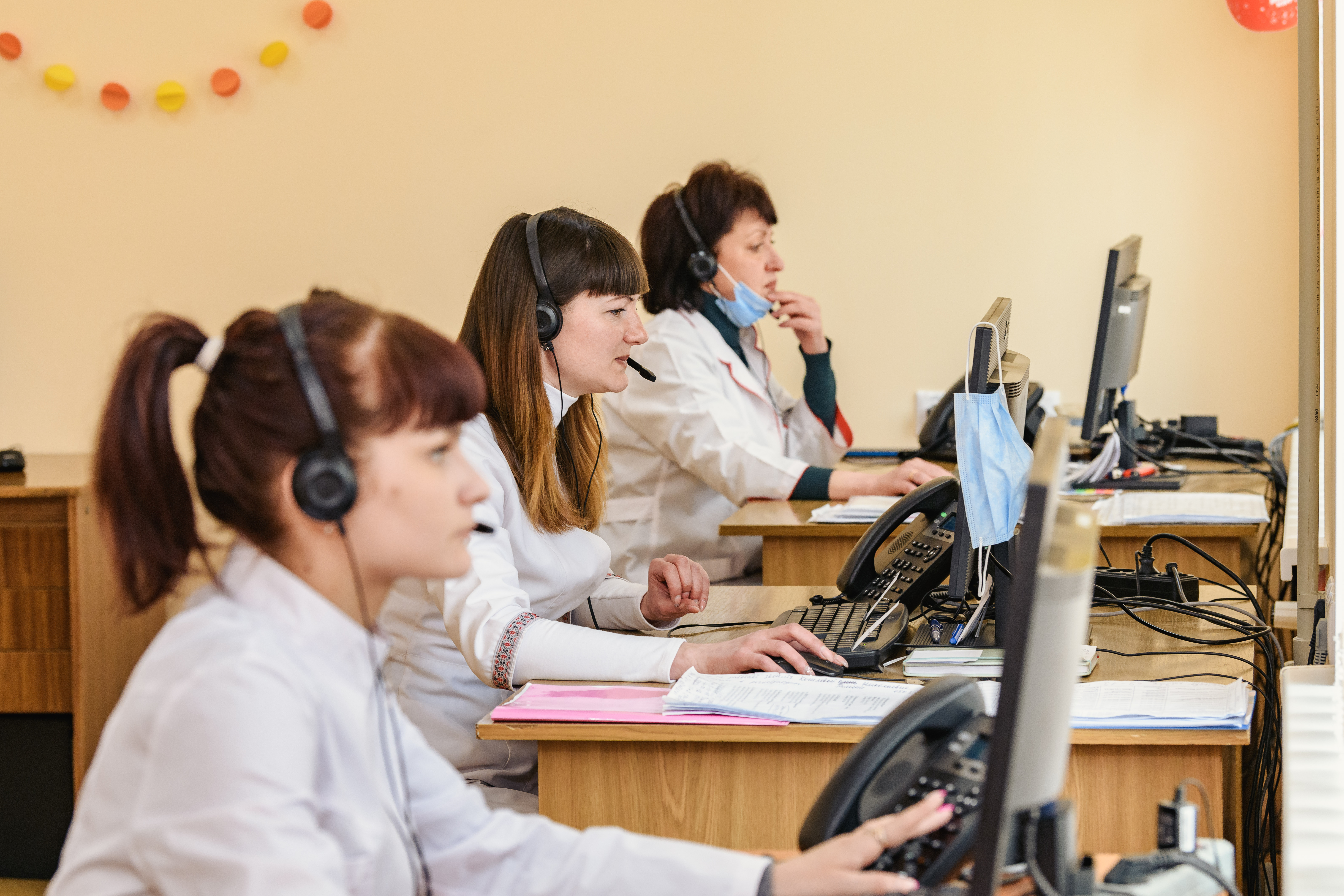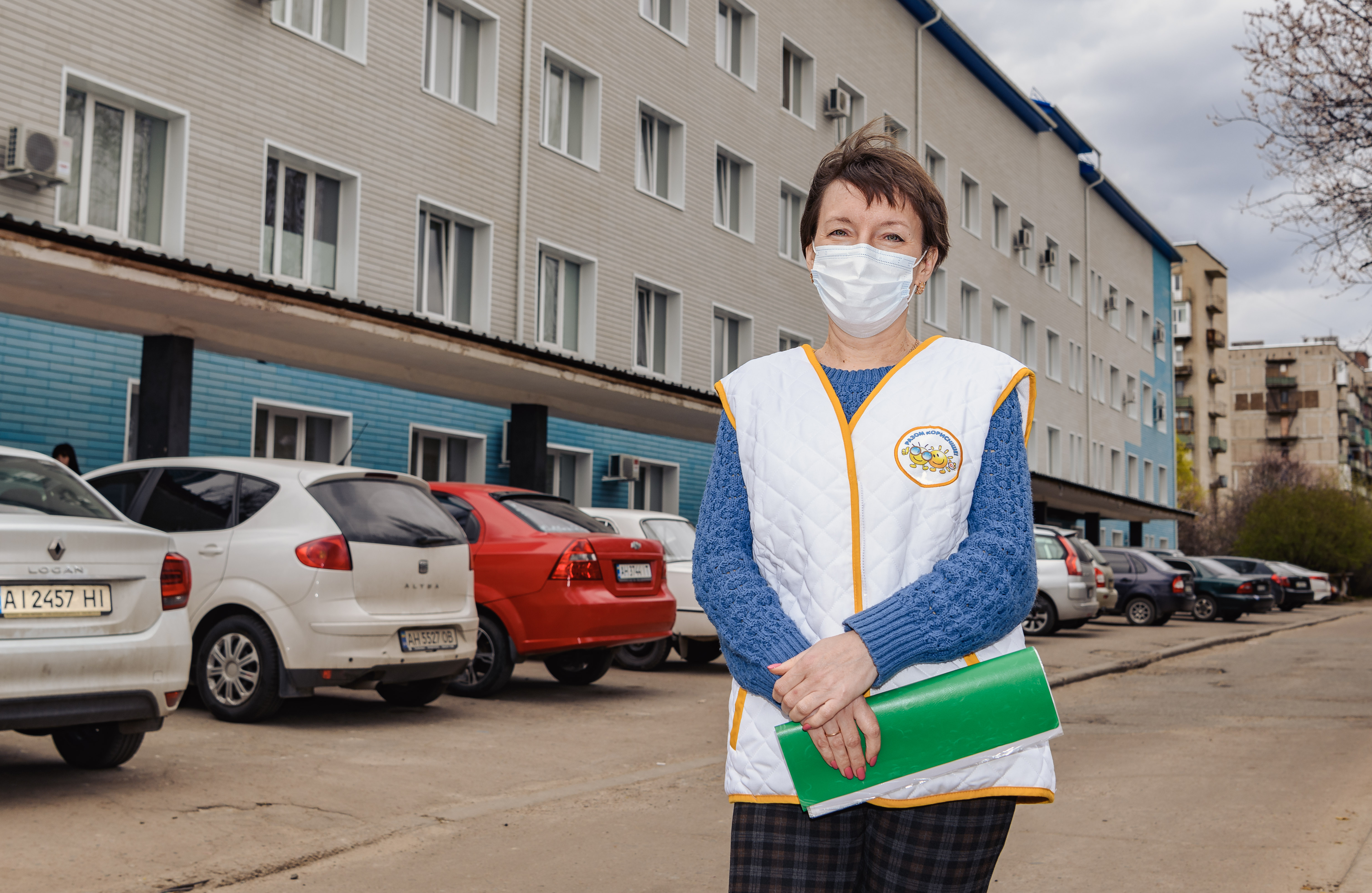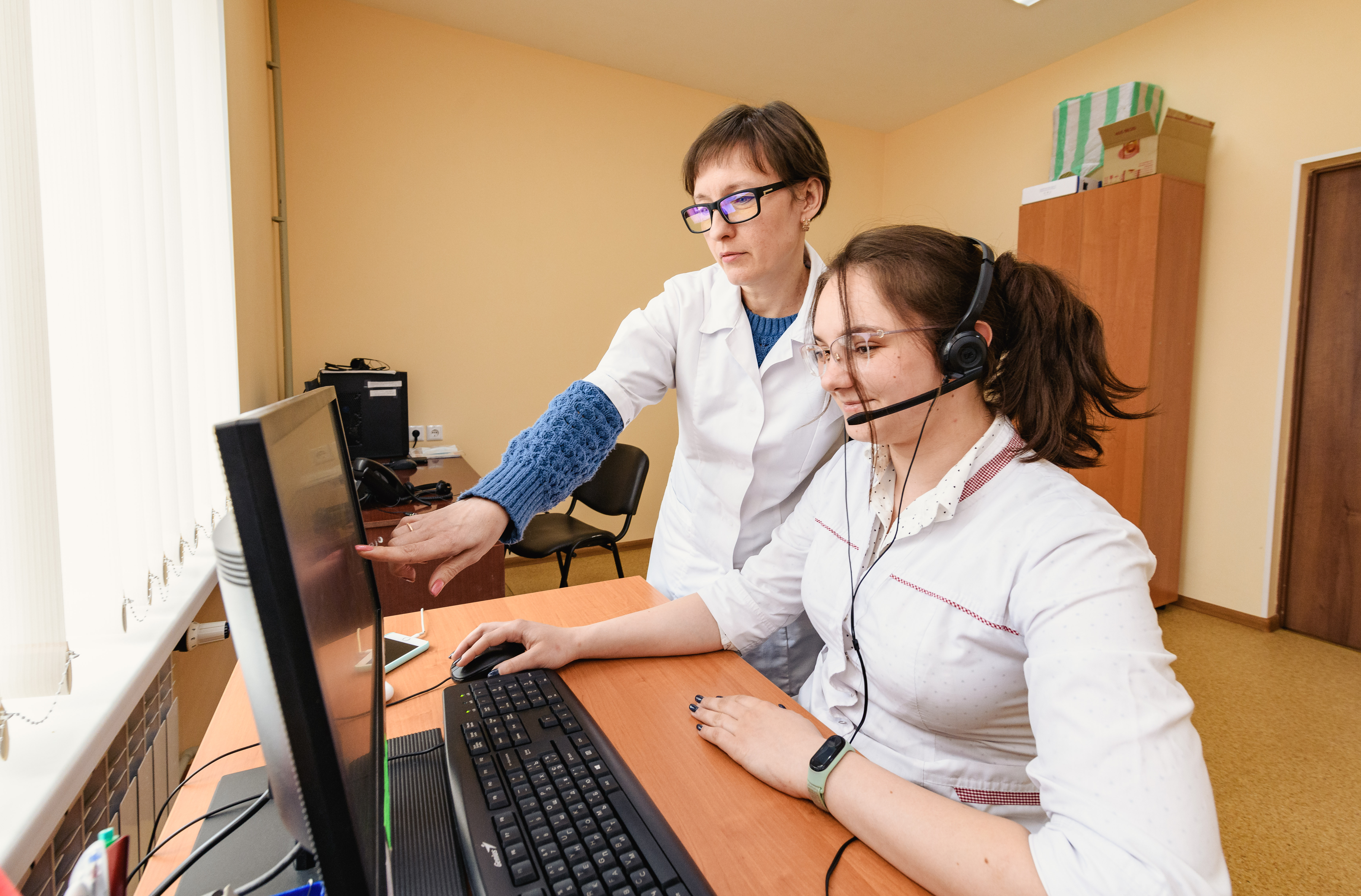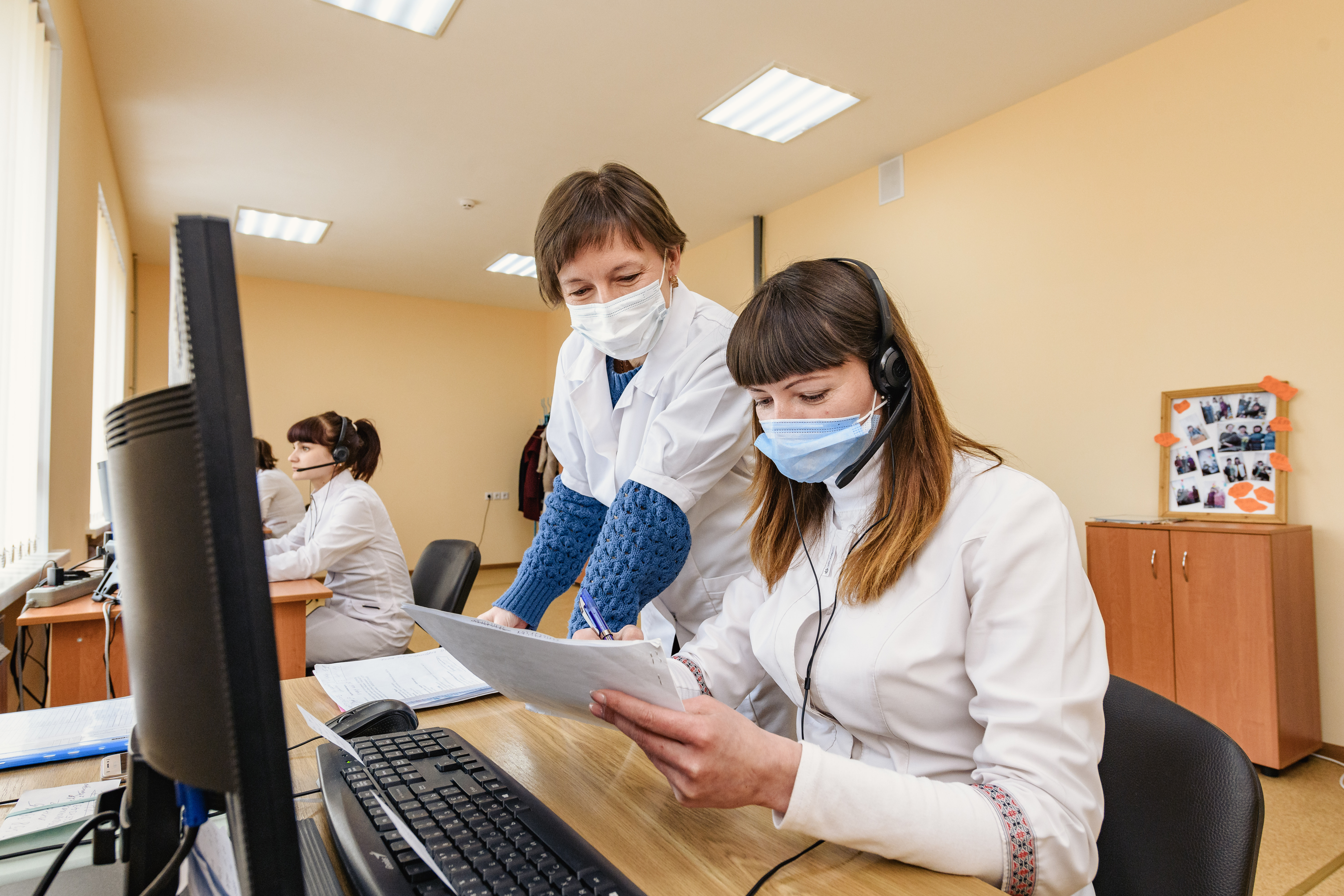The Kramatorsk Medical Call Centre provides critical information about COVID-19 to more than 80,000 city residents
Photo credit: Artem Hetman / UNDP Ukraine
Kateryna Leonova, 45, had been working at the medical registry at the Kramatorsk Health Care Centre in the Donetsk Oblast for many years. But she could not imagine how her working life would change with the onset of the novel coronavirus pandemic in Ukraine in 2020.
In April 2020, when cases of COVID-19 were already growing exponentially in Ukraine, Leonova was offered the position of coordinator at the hospital's newly established medical call centre. She agreed without hesitation, and was enthusiastic about the new work. She now works as a senior coordinator.
"I love working with people, and I want to help everyone who calls our centre,” Leonova says. “It’s crucial for patients now to be listened to, and to know that centre will help them."
The opening of the call centre coincided with the outbreak of the COVID-19 pandemic in Ukraine, and work there was in full swing from the start, with the number of calls growing almost every day. Leonova's day-to-day responsibilities include working with patients at the reception desk, answering phone calls, cataloguing medical records, and scheduling the shifts of the other coordinators who work at the centre.
"The number of calls to the call centre is constantly growing,” Leonova says. “For instance, a month after opening, we received on average about 200 calls a day. But now, especially on Mondays and Tuesdays, we get about 1,500 a day. Sometimes this is because the same patient calls more than once. Often the same patient might call us about 20 times. In just ten months of operating, the centre has received nearly 100,000 calls."
Leonova admits that when the epidemiological situation in Ukraine began to deteriorate rapidly, her difficulties at work increased significantly. The call centre currently has six coordinators, but they are unable to answer all of the incoming calls at the same time. Still, thanks to a specially designed system, all of the call details are saved, and coordinators are able to call back those who couldn’t get through to the centre because of busy lines.
To help patients more effectively during the pandemic, the coordinators have also recorded voice messages with information about COVID-19, such as express and PCR testing for coronavirus infection, and how to self-isolate. If patients need more information, they can call the coordinators directly.
"Concerned clients call us every day, and our job is to make sure that the patient has a positive experience in resolving their issue,” Leonova says. “Every call matters, and we do our best to find the best solution to any problem we are approached with."
The most common inquiries coming into the call centre concern requests for a doctor's appointment – now often about respiratory diseases – requests for a home visit by a doctor, which is also often connected to severe respiratory distress in a patient, and requests for information about how and where to get COVID-19 tests.
The call centre’s team of professionals all share a desire to work together to find ways to make their service more efficient. The UN Recovery and Peacebuilding Programme, with European Union financial support, worked with the staff of the Health Care Centre from May to August 2020, under a project to implement a series of measures to enhance the efficiency of medical institutions. Special attention was paid in the project to establishing effective communication with patients, including at the medical centre where Leonova currently works.
The top-class training in communication skills they received under the UNDP project has enhanced the coordinators’ skills in conveying vital information to ever patient who calls. UNDP-EU-supported activities at the Health Care Centre also included online and offline training in primary care health care reform, communications, customer services, and more.
"Kramatorsk Health Care Centre №1 serves about 82,000 residents of the city, so six coordinators are not enough for such a large population,” says Leonova. “Despite this, I’m sure that the opening of the call centre has already reduced the load on our clinics’ reception desks. And most importantly – it has improved the quality of services provided to city residents."
Background
The United Nations Recovery and Peacebuilding Programme (UN RPP) is being implemented by four United Nations agencies: the United Nations Development Programme (UNDP), the UN Entity for Gender Equality and the Empowerment of Women (UN Women), the United Nations Population Fund (UNFPA) and the Food and Agriculture Organisation of the United Nations (FAO).
Twelve international partners support the Programme: the European Union (EU), the European Investment Bank (EIB), the U.S. Embassy in Ukraine, and the governments of Canada, Denmark, Germany, Japan, the Netherlands, Norway, Poland, Sweden & Switzerland.

 Locations
Locations